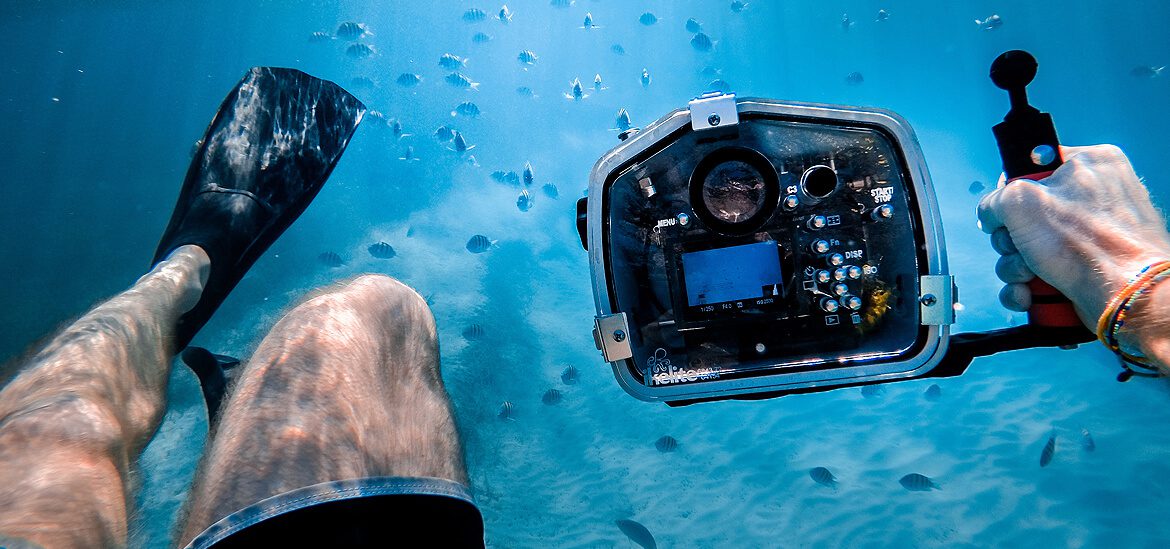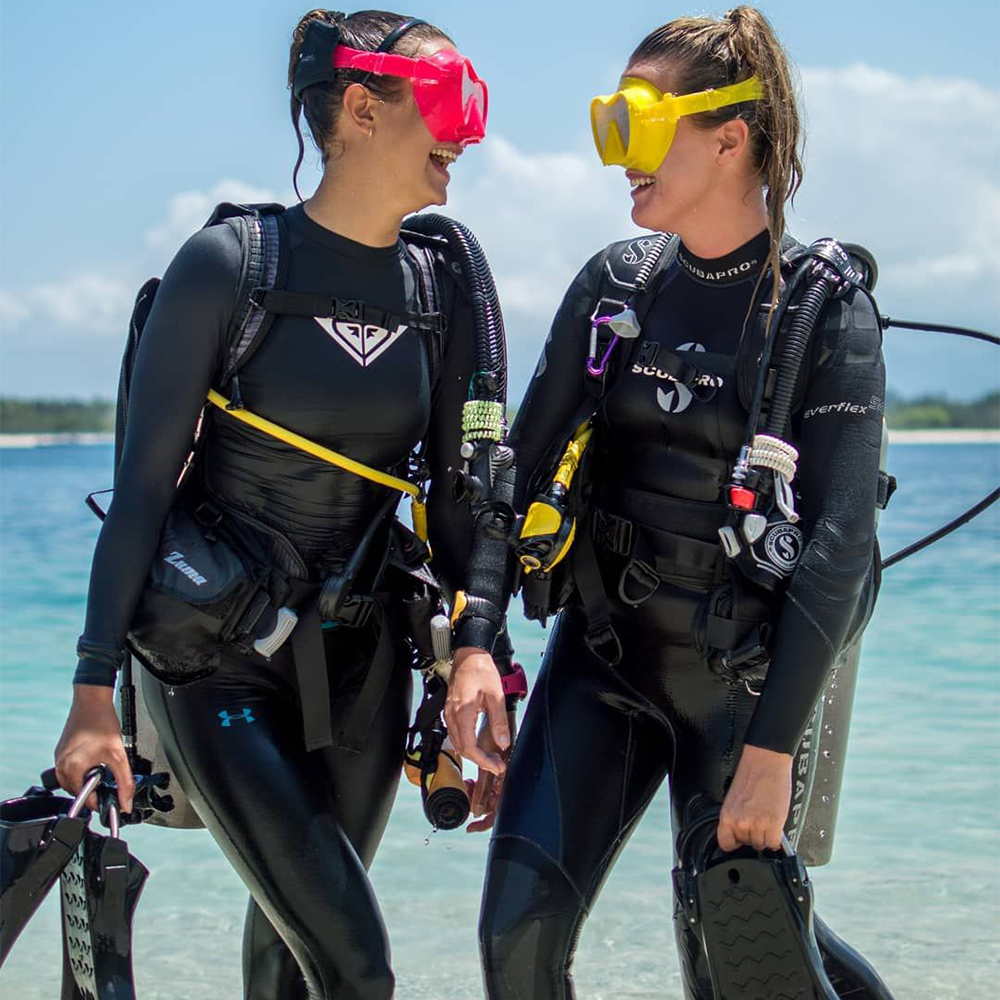- Home
- COURSES
Course Details

Dive
price
Dives
only
day
course
Diving Tips
Safety First
Pre-Dive Checks: Always perform thorough equipment checks before each dive. Ensure all gear is in excellent working condition.
Dive Plan: Develop a detailed dive plan, including depth, duration, and emergency procedures. Communicate the plan clearly with your team.
Buddy System: Never dive alone. Always have a dive buddy to enhance safety and share responsibilities.
Equipment Handling -
Proper Gear: Use high-quality, well-maintained diving equipment. This includes suits, masks, regulators, and fins suitable for the specific job.
Regular Maintenance: Regularly service and inspect all equipment to prevent malfunctions underwater.
Spare Parts: Carry essential spare parts and tools for on-the-spot repairs.
Environmental Awareness - Marine Life: Be aware of and respect marine life. Avoid disturbing habitats and always dive responsibly. Water Conditions: Pay close attention to current, visibility, and weather conditions. Adjust your dive plan accordingly to ensure safety. Pollution Prevention: Minimize environmental impact by using eco-friendly materials and practices whenever possible.
Contact for more detailsWELCOME TO OTDS

WOMEN IN
COMMERCIAL DIVING
Female divers are redefining what it means to be a successful diver. Although commercial diving is often thought of as a male-dominated industry (and the numbers still support that position), women are increasingly enrolling in commercial diving schools. And after graduation, they are entering the workforce as dive tenders, medical support technicians, and saturation divers on offshore rigs, nuclear power plants, and much more. Yet, there are some misconceptions about women in commercial diving, which we hope to address and show how vital workplace diversity is on the surface and underwater. While the industry has a long way to go before the gender numbers even out, some excellent female divers are showing how women can perform the same underwater tasks as men.
WHAT JOBS CAN WOMEN HAVE IN COMMERCIAL DIVING?
Female diving school graduates have the same opportunities as male graduates for employment. The commercial diving industry is for the most part merit-based. If you can perform the physical work, work well with other divers, and minimize mistakes, you will have a bright future as a commercial diver. Some of the opportunities female divers can explore after they graduate from an accredited commercial diving school include the following:
Dive Tender
Support dive operations, including dressing and undressing diver, managing air supply, checking diving equipment, and communicating with the diver when underwater.
Salvage Diver
Inspect, maintain, repair, construct, or dismantle underwater structures. Salvage divers can work on offshore and inland projects.
Offshore/Saturation Diver
Install and maintain oil wellheads, manifolds, pipeline work, and platforms, as well as offshore wind farms. Offshore divers often remain underwater in pressurized saturation tanks between shifts to prevent decompression sickness, as these jobs are usually performed deep underwater.
Inland Diver
Construct, inspect, and repair bridges, piles, piers, water treatment facilities, and hydroelectric dams. Inland divers work in rivers, lakes, intercoastal waterways, and other land-locked bodies of water.
Diver Medical Technician (DMT)
Assess divers’ condition, especially during decompression and recompression, apply first aid, run emergency drills, and verify emergency plans.
ARE THERE ADVANTAGES WOMEN HAVE PERFORMING WORK UNDERWATER?
The best divers learn that there are multiple ways to complete a task, and using brute force or strength may not be the best option. It could put a diver at risk of physical injury or jeopardize the project. The idea is to think smarter, not harder. Although women are usually smaller in stature than their male counterparts, there are some ways they can use that to their advantage. For example, they will be able to fit into tighter spaces that must be accessed to complete a repair or inspection.
Female divers may be more likely to take the time to deliberate and consider the best way to move an imposing object or perform a physically-grueling task without putting their bodies at risk. This usually comes with experience and trial-and-error.
DO WOMEN FACE ANY DISADVANTAGES IN FINDING A JOB THAN MEN?
Some aspects of the commercial diving industry need to be modernized to provide a suitable environment for female divers to feel comfortable doing their jobs and working with a mostly male crew. Restroom facilities and separate changing areas and sleeping quarters are just a few that come to mind. While newer vessels and offshore/inland environments will have these facilities installed, older ships or remote environments may not have been modernized yet to reflect a working environment with male and female divers. Because of this, some companies may be hesitant to hire female candidates if they feel they don’t have the facilities to support a proper working environment. If you are having trouble finding a job after graduating, you should speak with your career counselor to help you find companies that support a diverse workforce.
WHAT ARE SOME HEALTH MYTHS ABOUT WOMEN AND COMMERCIAL DIVING?
There is one difference between women and men that will affect their ability to dive: Most medical experts agree that pregnant women should avoid diving. There haven’t been any studies on how diving could affect a fetus’s health, but it is theoretically possible that diving could increase the risk of congenital disabilities. If you are pregnant or trying to get pregnant, it’s best to err on the side of caution and avoid diving.
ARE WOMEN MORE AT RISK OF DECOMPRESSION SICKNESS THAN MEN?
There was a time in the industry when some thought women were more prone to decompression sickness than men. The idea was that women generally have more body fat than men, and fat tissue takes longer to off-gas after diving. But the data simply doesn’t support this myth, and the truth is that women are not more at risk of decompression illnesses or adverse health effects than men.
ARE THERE OTHER MEDICAL CONCERNS WOMEN SHOULD KNOW?
Diving involves dangerous environments and tasks where it’s essential to be mindful of what you’re doing and how you feel at all times to minimize your risk of injury or death. In frigid water, women may be more prone to hypothermia if they do not wear adequate thermal gear because they are smaller in size. Health professionals note that menstruation could be a concern for some female divers, especially in environments with outdated facilities. However, with testing and more women entering the commercial diving industry, we are learning that many preconceptions about women’s health and diving are simply myths, and it’s perfectly safe for women to dive.
